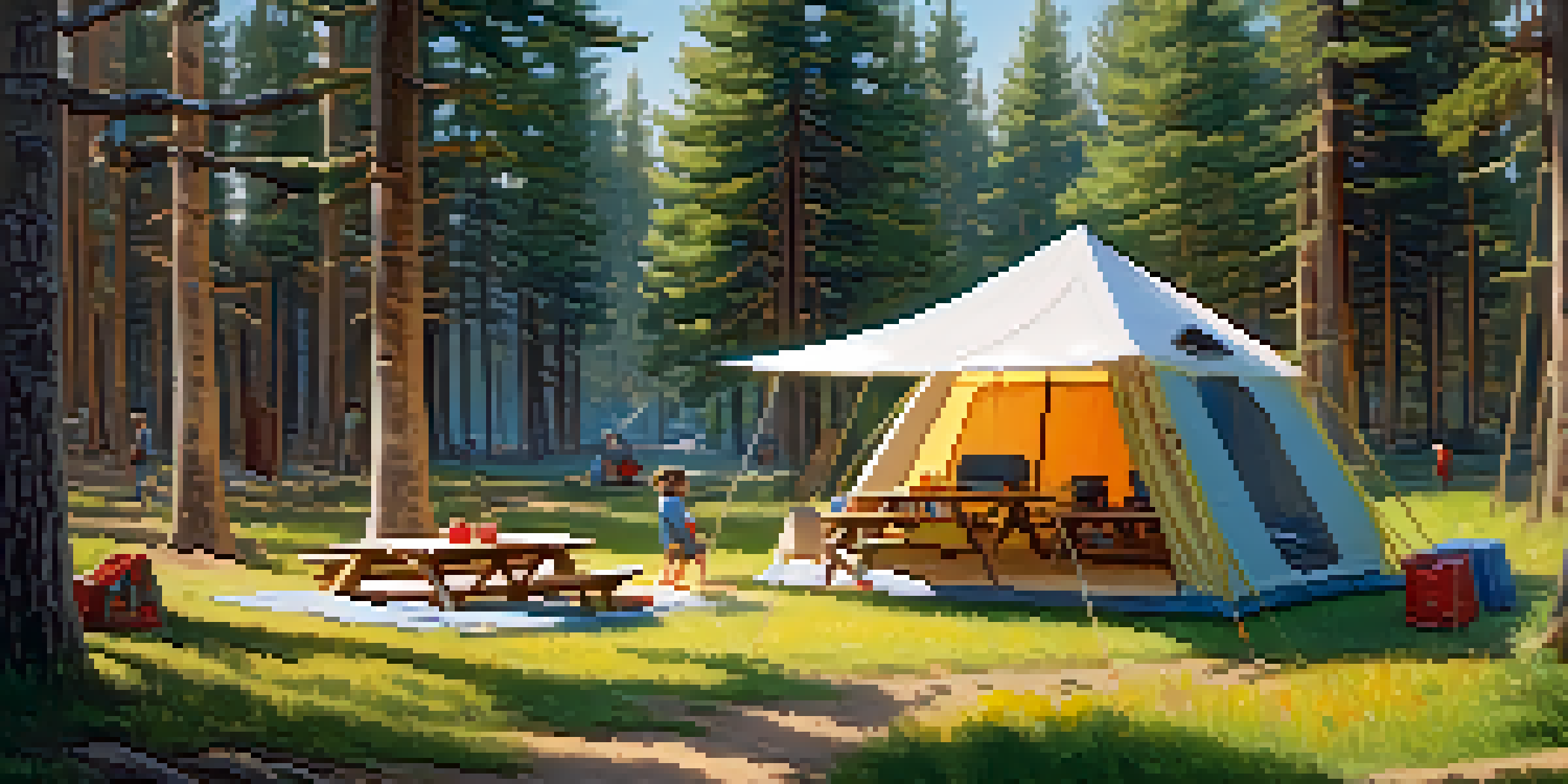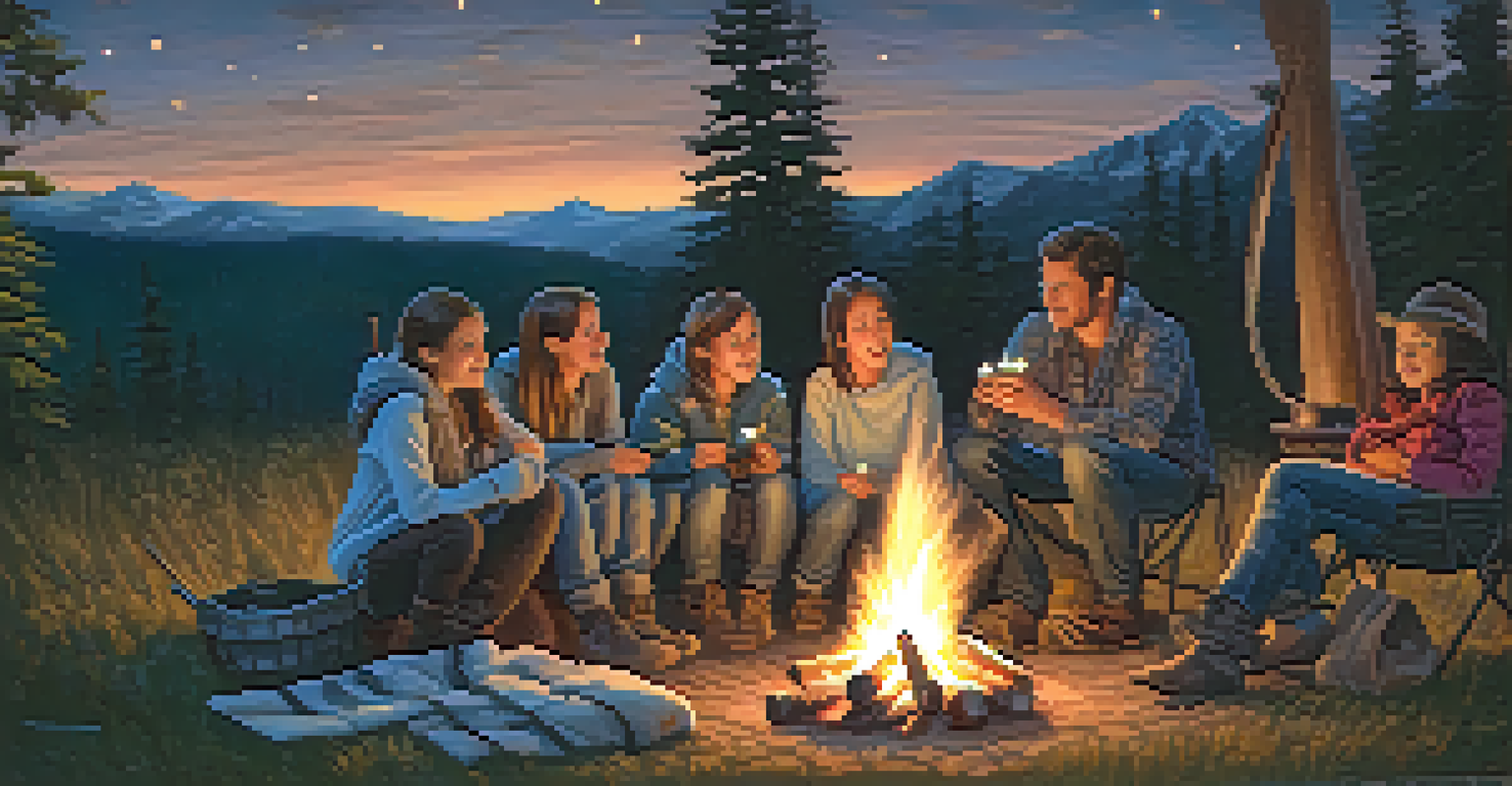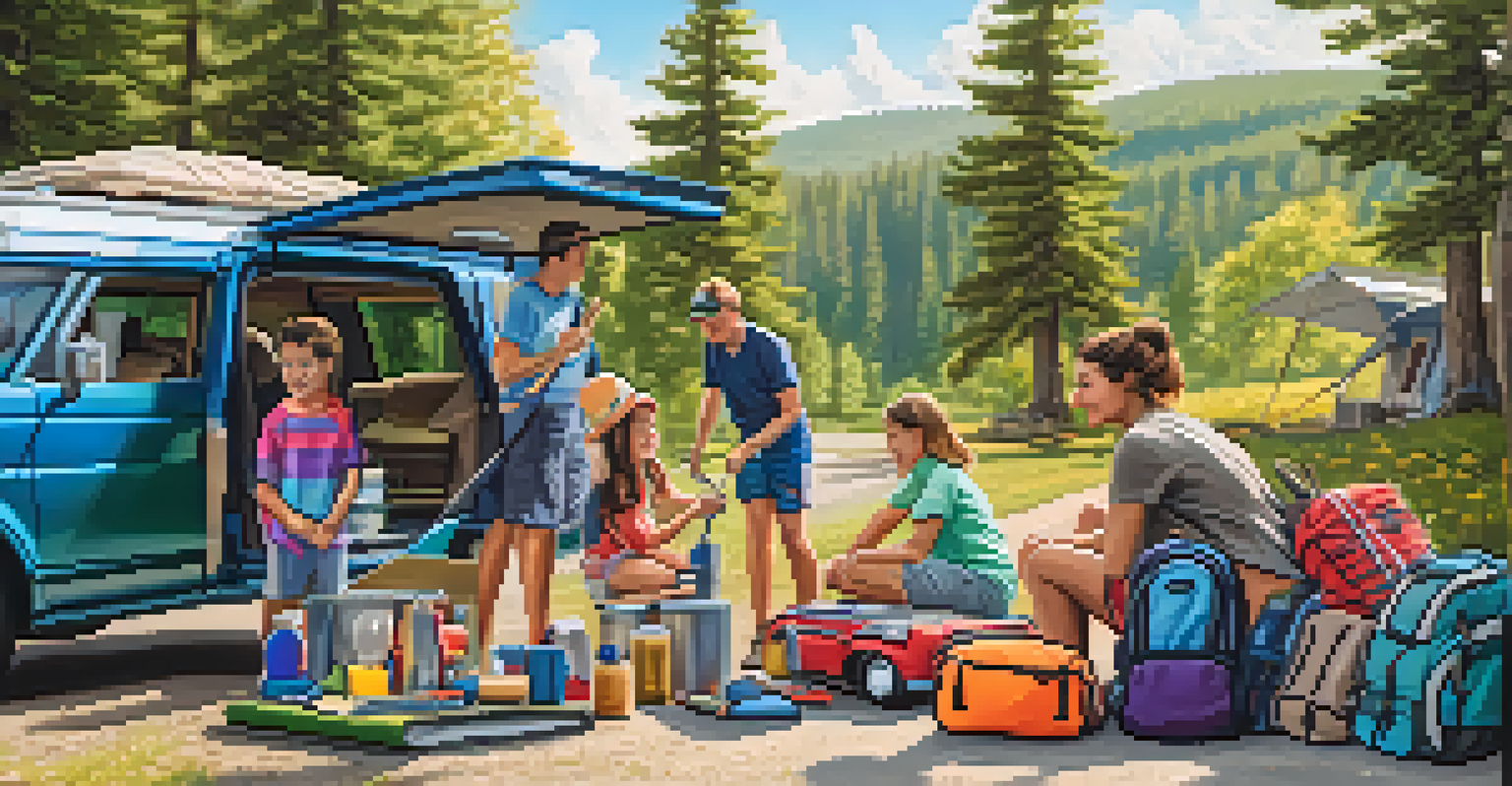How to Plan a Family Camping Trip: Tips and Tricks

Choosing the Perfect Campsite for Your Family
Selecting the right campsite is crucial for a successful family camping trip. Consider the amenities available, such as restrooms, fire pits, and picnic tables, which can make your stay more comfortable. Additionally, look for sites that offer nearby activities like hiking trails or swimming areas, so everyone can enjoy their time outdoors.
Camping is nature's way of promoting the motel business.
Safety is another important factor when choosing a campsite. Ensure the location is not prone to wildfires or flooding, and check for any recent wildlife sightings. A safe campsite will allow your family to relax and focus on making memories instead of worrying about potential hazards.
Finally, consider the distance from home. While you might be tempted to go to a far-off location, a closer campsite can make the trip less stressful, especially for younger kids. A shorter drive means more time spent enjoying nature and less time in the car.
Creating a Camping Checklist for the Family
A camping checklist is your best friend when planning a family trip. Start by listing essential items such as tents, sleeping bags, cooking supplies, and food. This will help ensure that you don't forget anything important, which can lead to unnecessary stress during your adventure.

Don't forget to include personal items like clothes, toiletries, and any medications needed. Kids can be particularly forgetful, so involving them in the checklist process can teach responsibility and ensure they have everything they need for the trip. Plus, it can be a fun bonding experience!
Choose the Right Campsite
Selecting a campsite with essential amenities and safety features ensures a comfortable and enjoyable family experience.
Lastly, consider including entertaining items, such as games, books, or a portable speaker, to keep the family entertained during downtime. A well-rounded checklist will help make your camping trip enjoyable and memorable for everyone.
Planning Meals for Your Camping Adventure
Meal planning is a key part of any camping trip. Opt for simple, easy-to-cook recipes that require minimal prep and cooking time. Foods like hot dogs, sandwiches, or foil packet meals can be great options that are both delicious and convenient for family camping.
The greatest gift of the garden is the restoration of the five senses.
Involve the whole family in meal planning by letting everyone suggest their favorite camping meals. This helps ensure that everyone is excited about the food and gives kids a sense of ownership over the trip. Plus, it can spark creativity in the kitchen as you experiment with outdoor cooking.
Don't forget to pack snacks! Kids tend to get hungry between meals, so having a variety of easy-to-grab snacks like trail mix, granola bars, or fruit can keep spirits high and energy levels up during your adventures.
Packing Smart: Gear for Family Camping
Packing the right gear can make or break your camping experience. Start with the basics: a sturdy tent, sleeping bags suitable for the season, and cooking equipment. Make sure you have enough sleeping space for everyone, and consider the age and comfort level of your children when selecting sleeping arrangements.
Next, think about the little things that can greatly enhance your trip. Items like headlamps, camping chairs, and portable coolers can add comfort and convenience. Remember, the goal is to make your camping experience enjoyable, so packing smart is essential.
Create a Comprehensive Checklist
A well-thought-out camping checklist helps prevent forgetting essential items, reducing stress and enhancing the adventure.
Lastly, don’t forget safety items like a first-aid kit, insect repellent, and sunscreen. Accidents can happen, and having these items on hand ensures you’re prepared for any bumps in the road, allowing your family to focus on fun instead of worries.
Setting Up Camp: Tips for a Smooth Start
Setting up camp can be an adventure in itself, so make it a team effort! Assign tasks to each family member, whether it's setting up the tent, gathering firewood, or preparing the cooking area. This not only makes the process quicker but also fosters teamwork and collaboration.
Choose a suitable location within your campsite to set up your tent. Look for flat, dry ground away from potential hazards like falling branches or water runoff. Setting up in a good spot can make a significant difference in your overall camping experience.
Lastly, remember to take breaks and enjoy the process. Setting up camp is the first step in your adventure, and taking the time to appreciate your surroundings can set a positive tone for the entire trip.
Keeping the Family Entertained While Camping
One of the joys of camping is disconnecting from screens and reconnecting with nature and each other. Plan a variety of activities to keep everyone engaged, such as hiking, fishing, or stargazing. These shared experiences can create lasting memories for your family.
Games can also be a great way to entertain the family during downtime. Consider bringing along board games, cards, or even scavenger hunts that can be played outdoors. Activities like these can spark laughter and bring everyone closer together.
Prioritize Family Safety
Understanding safety measures and respecting nature fosters a secure environment for your family's camping trip.
Don’t forget about storytelling around the campfire! Sharing stories or roasting marshmallows while wrapped in cozy blankets can create a magical atmosphere that everyone will cherish. It's a fantastic way to wind down after a day of adventures.
Safety First: Essential Tips for Family Camping
Safety should always be a priority when camping with family. Before you embark on your trip, familiarize yourself with the campsite rules and regulations, and educate your family about wildlife safety. Knowing what to do if you encounter animals like bears or snakes can be crucial for your family's well-being.
Establish a meeting point in case anyone gets separated, and ensure everyone has a way to communicate, whether it's through a phone, walkie-talkies, or an agreed-upon signal. This fosters a sense of security among family members and can alleviate anxiety in unfamiliar surroundings.

Lastly, encourage the family to respect nature and the environment. Teach kids about Leave No Trace principles, such as packing out what you pack in and staying on designated trails. This not only helps protect the great outdoors but also instills values of responsibility and stewardship in your children.